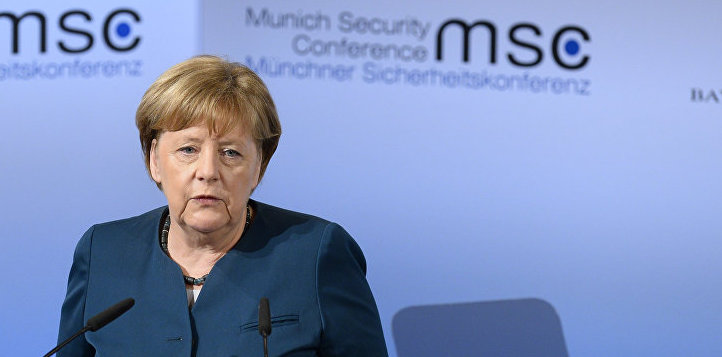Munich Security Conference 2019
February 19, 2019 | Expert Insights

The 2019 edition of the annual Security conference saw US President Donald Trump attacked from all corners, by key allies, domestic political rivals and even members of his own Republican Party.
Background
The Munich Security Conference is an annual conference on the international security policy that has taken place in Munich, Bavaria since 1963. It is the world's largest gathering of its kind.
Over the past four decades, the Munich Security Conference has become the most important independent forum for the exchange of views by international security policy decision-makers. Each year it brings together about 350 senior figures from more than 70 countries around the world to engage in an intensive debate on current and future security challenges.
The list of attendees includes Heads of States, Governments and International Organizations, Ministers, Members of Parliament, high-ranking representatives of Armed Forces, Science, Civil society as well as Business and Media.
The conference is held annually in February. The venue is the Hotel Bayerischer Hof in Munich, Germany. The 55th Security Conference was held from 15 to 17 February 2019.
Analysis
The annual security conference where Western allies have long forged united fronts erupted into a full-scale assault on the Trump administration’s foreign policy. European leaders, would-be Democratic challengers and even the president’s Republican backers took the floor to rebuke the president’s go-it-alone approach.
German Chancellor Angela Merkel led the charge, unleashing a stinging, point-by-point takedown of the administration’s tendency to treat its allies as adversaries. The speech appeared to provide a balancing criticism of a usually NATO-oriented review of security issues. Trump’s antagonistic behaviour has bred two years of accumulated grievance in much of Europe but has been met with few substantive answers on how to effectively challenge it.
Merkel accused the United States of strengthening Iran and Russia with its plans for a speedy military pull-out from Syria. She expressed shock that the Trump administration would deem BMWs made in South Carolina a threat to national security. And she lamented that the U.S.-led global order “has collapsed into many tiny parts.”
The crowd gave the German chancellor an extended standing ovation. The customarily reserved Merkel beamed as she took her seat. Ivanka Trump was sent to represent the US with no previous experience in the national security issue.
Meanwhile, Russian Foreign Minister Sergei Lavrov commented on the Trump administration’s refusal to hold “meaningful consultations” on the START bilateral arms treaty. He added that Russia will continue to press Washington for a meeting on mutual arms control. Lavrov’s comments come just days after the US announced its intention to formally withdraw from the Intermediate-Range Nuclear Forces Treaty, triggering the fear of a ballistic arms race in Europe again.
Trump’s Vice President represented the US government and offered little to the conference from a security perspective. His focus was squarely reminding everyone that the US still remains the “leader of the free world” amidst lukewarm applause. Pence credited Trump with spurring NATO allies to spend more on defence but insisted that they are still not spending enough.
The Iran Nuclear Deal was another issue of contention between the European allies; and the US. Vice President Pence reiterated a demand he first made in Warsaw for European allies to follow the United States out of the Iran nuclear deal. “The time has come for our European partners to withdraw,” Pence said. Pence later said he had had “frank discussions” with European allies about the issue. Merkel said she found the dispute between Europe and the United States on Iran “depressing.”
The conference saw a majority of the participating EU countries in favour of retaining the Iran deal. This follows the UK, France and Germany setting up a payments system for EU countries to bypass the US-imposed sanctions on Tehran.
Assessment
Our assessment is that the 2019 Munich Security Conference saw rising criticism of the Trump foreign policy. Close to three years since his inauguration, the Trump administration doesn’t have ambassadors in 25 countries, including Turkey and Saudi Arabia, and we believe that the near-unanimous criticism of the Trump administration will be a wake-up call for the State Department to act.
Image Courtesy: Munich Security Conference 2019 / Kuhlmann








Comments